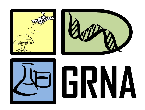Banca de QUALIFICAÇÃO: DANNA MORAES ALVES
Uma banca de QUALIFICAÇÃO de MESTRADO foi cadastrada pelo programa.DISCENTE : DANNA MORAES ALVES
DATA : 28/01/2019
HORA: 14:00
LOCAL: sala 103 - Campus Amazônia
TÍTULO:
DEVELOPMENT OF MOLECULAR MARKERS SPECIFIC TO Macrobrachium amazonicum (DECAPODA, CARIDEA, PALEMONIDAE) USING DALP
PALAVRAS-CHAVES:
Macrobrachium amazonicum, pseudogenes, heteroplasmy, DALP
PÁGINAS: 23
GRANDE ÁREA: Outra
ÁREA: Ciências Ambientais
RESUMO:
Among Macrobrachium prawns, the native species of the Amazon, Macrobrachium amazonicum, popularly known as Amazon River Prawn, is considered the most abundant in the region. The extensive distribution of M. amazonicum has contributed to the diversification of this species in coastal populations and continental populations. The occurrence in different environments allowed an enormous biological plasticity in terms of ecology, morphology, physiology, biochemistry, growth, reproduction, development and genetics. According to data available in the literature, M. amazonicum is divided into three genetic lineages: continental Amazonian population, coastal Amazonian population and continental Pantanal population. The marker originating from the mitochondrial cytochrome oxidase subunit I gene (COI), popularly known as DNA Barcoding, stands out as one of the most widely used markers in genetic variability studies. For crustaceans, COI is the main marker used in molecular investigations. However, studies point to some limitations in the use of this marker as: distortions in mitochondrial DNA sequences by the inclusion of nuclear copies of mitochondrial DNA (pseudogenes or NUMTS) and / or heteroplasmy. Amplification of mitochondrial genes from total DNA may lead to preferential amplification or coamplification of NUMTS, where non-detection may lead to erroneous inferences, regardless of approach. In order to minimize possible problems of amplification of pseudogenes with universal primers, some authors discuss the importance of the use of specific primers. The present work proposes the use of the molecular technique of Direct Amplification of Length Polymorphisms (DALP) to elaborate primers optimized for M. amazonicum. The methodology to be carried out will be based on the selection of the DNA samples of the M. amazonicum specimens previously selected from the Laboratory of Education and Evolution - LEDEVO - UFOPA, totaling a sample of ten localities. To determine the concentration of the extracted DNA, all samples will be quantified in the L-QUANT spectrophotometer and later diluted in order to homogenize them. Polymerase chain reaction (PCR) will be performed using DALP marker primers, electrophoresis will enable detection of polymorphic bands to be trimmed, retrieved and reamplified with a new combination of DALP primers. After this step, the samples will be sequenced on the ABI 3500 automatic sequencer, and the sequences obtained will be aligned in the CodonCode Aligner v4.2.1 program for viewing and editing, if necessary. The design of the primers will also be done by the program CodonCode Aligner v4.2.1 and sent to the company specialized in the synthesis of these products. For validation of the specific primers will be selected samples referring to the three genetic linages of M. amazonicum, and from the products with positive amplification, will be done the sequencing of these samples. The sequences obtained will be aligned for viewing and editing. Phylogenetic trees will be constructed using the Maximum Likelihood (ML) methods implemented in the PhyML v3.0 program. The choice of the most appropriate molecular evolution model will be determined through the KAKUSAN program. The ML analysis the significance of the clusters will be estimated through the bootstrap analysis, starting from 1000 pseudorplications of the database. In view of this work, it is expected that the use of the DALP technique may generate specific oligonucleotides for the Amazon River Prawn. That these pretensive primers are sensitive enough to detect phylogenetic relationships with a higher degree of reliability, overcoming molecular obstacles such as pseudogenes.
MEMBROS DA BANCA:
Presidente - 1987988 - GABRIEL IKETANI COELHO
Interno - 1966924 - CARLOS IVAN AGUILAR VILDOSO
Externo ao Programa - 2162157 - LUCIANO JENSEN VAZ




